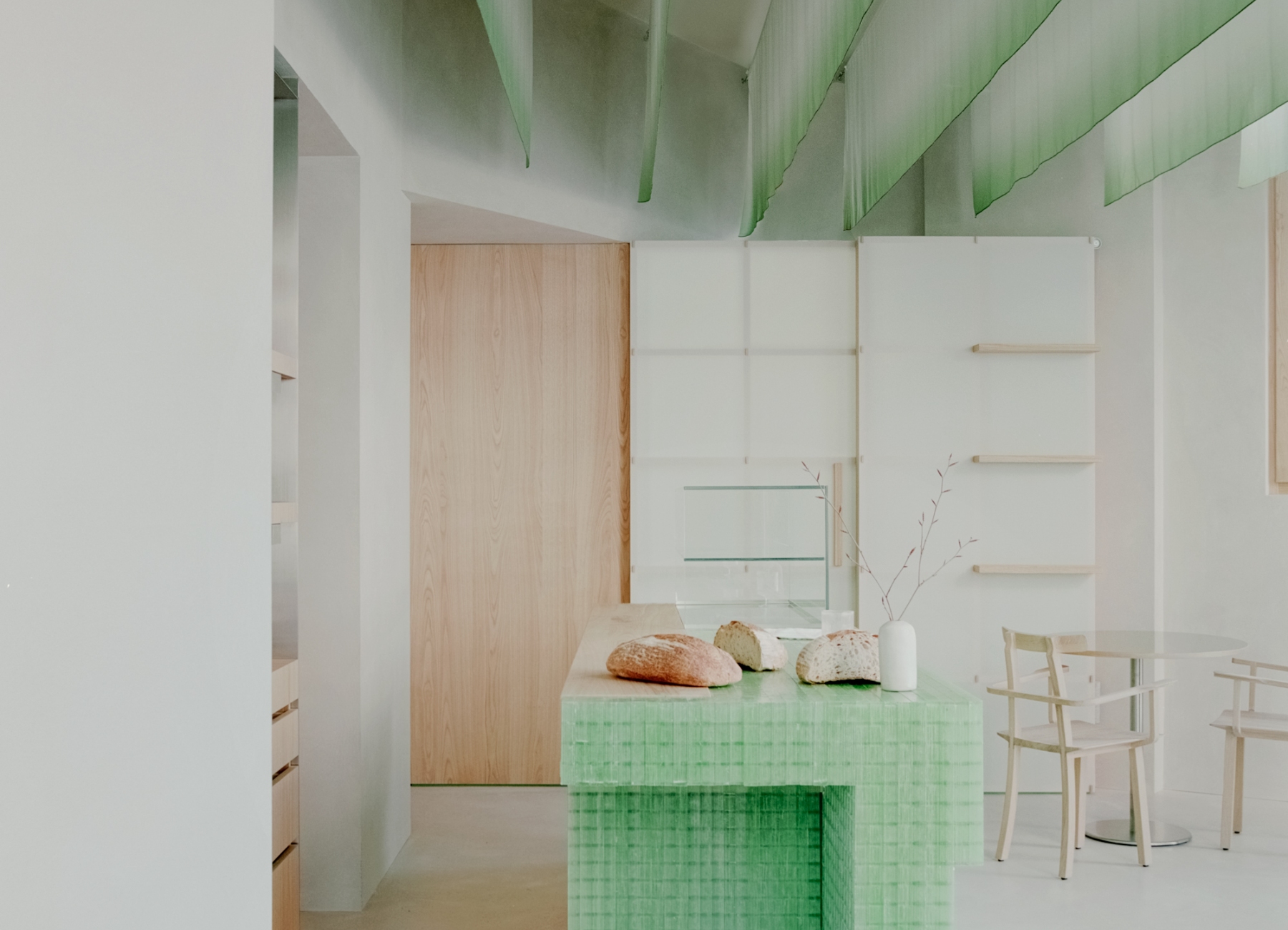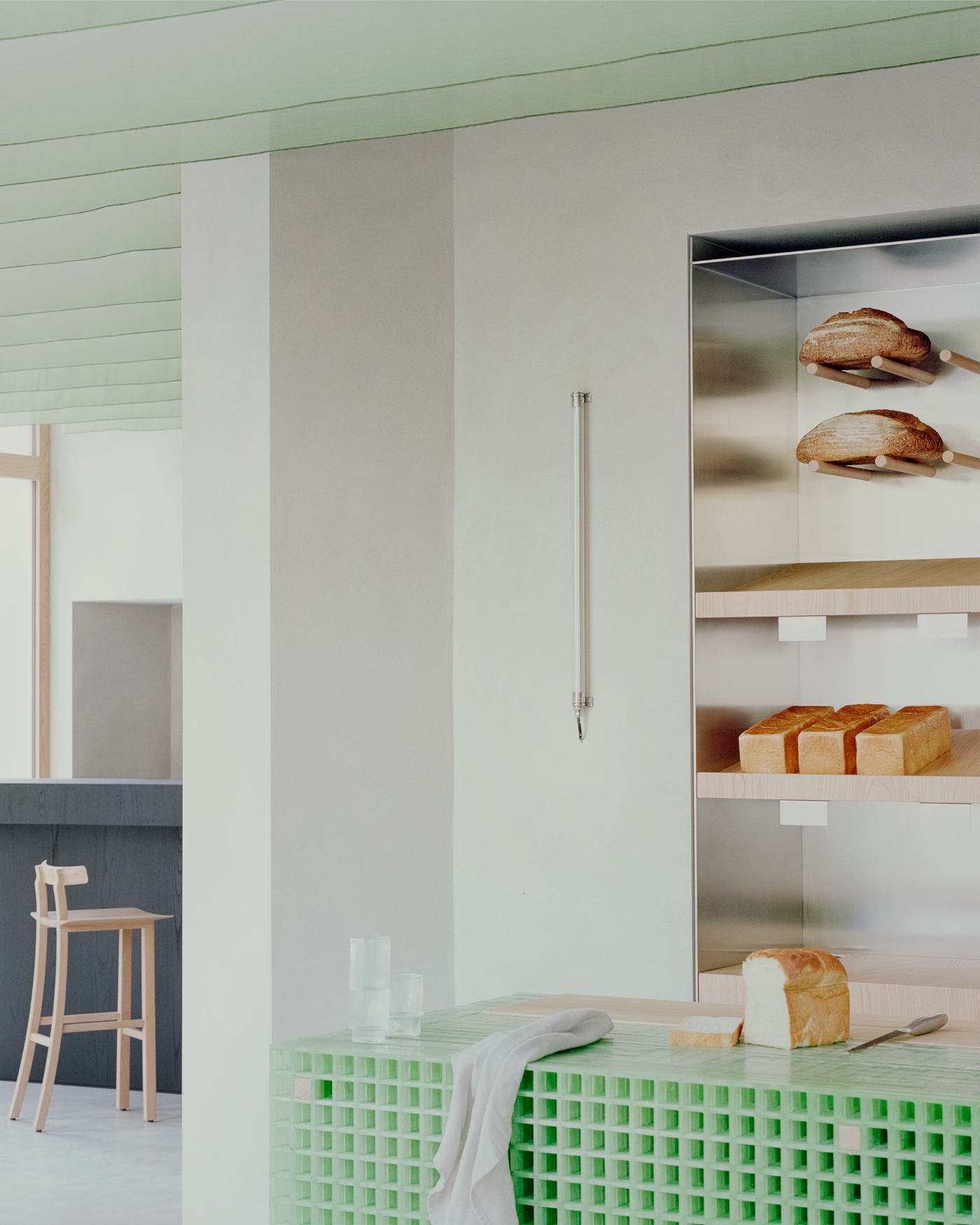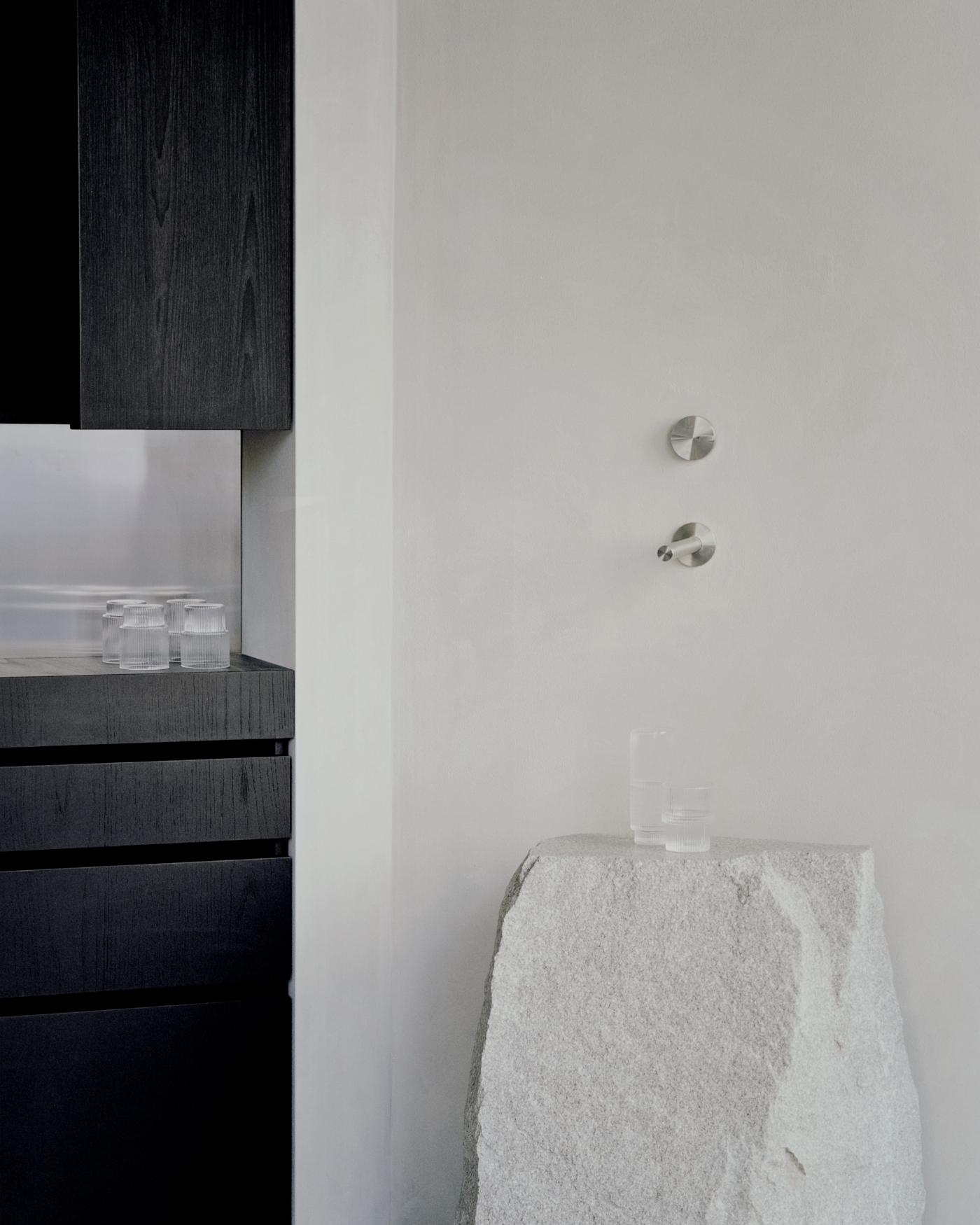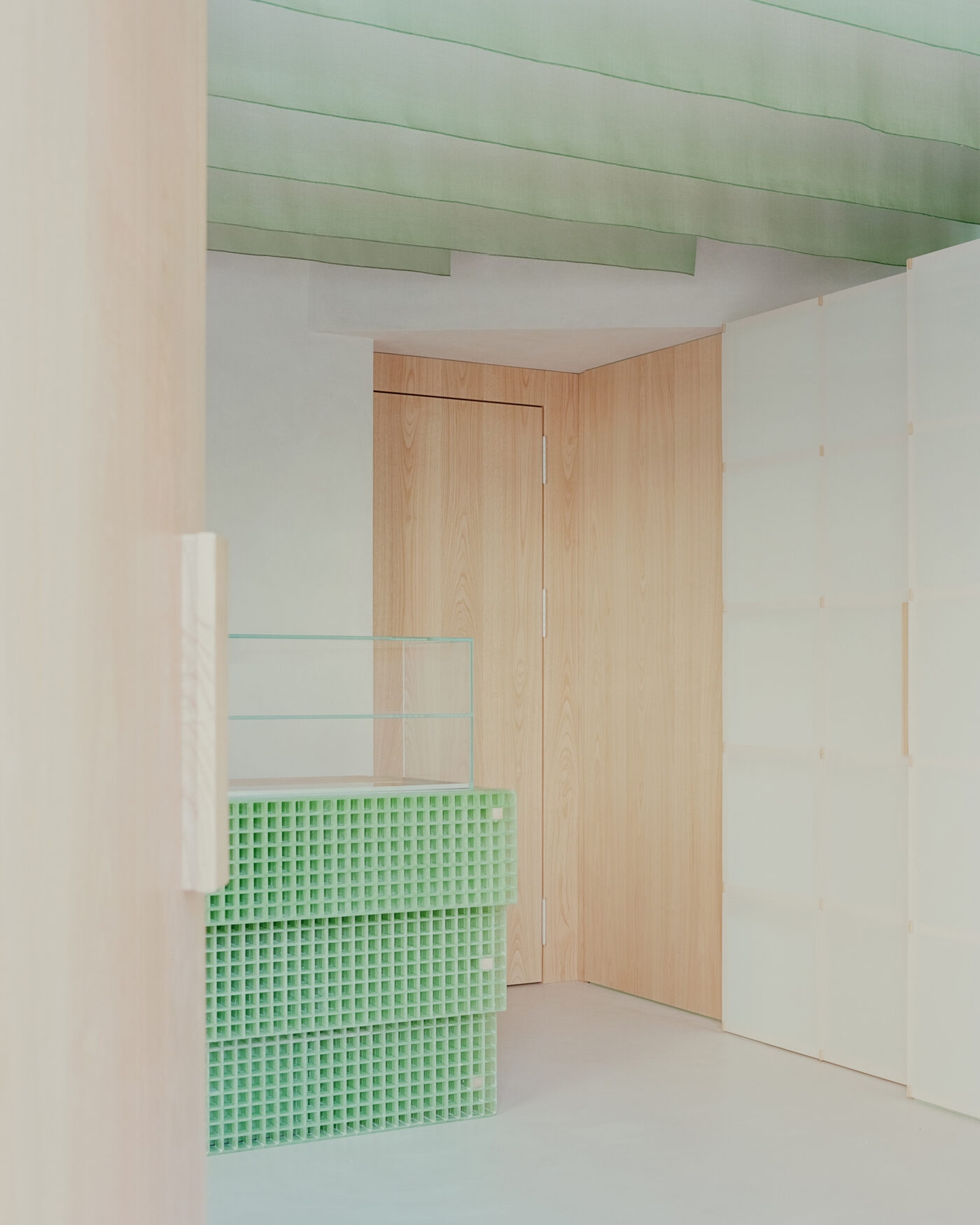Born from the collaboration of Yoji Tokuyoshi and Alice Yamada, PAN is a quiet dialogue between Japan and Milan—vivid collage made of a bakery, bar, or kitchen, it’s a subtle gesture of cultural exchange, shaped by studio wok.
PAN leans into the neighborhood, embraces it with open windows framed in chestnut wood and galvanized steel, and offers a kind of domestic threshold to the street: a suspended moment between inside and outside, tradition and experiment.
Within, the interior is neutral, but never cold—pared back but never sterile. It is a canvas, a container, for the rituals of bread and wine and everyday life. Two counters anchor the space: one for the bakery, the other for the bar. They coexist not as competitors but as cohabitants, connected by a single wooden bench that traces the room’s edge like a quiet conversation between strangers.
The bread counter, made from green fiberglass grating structure glows softly in the changing light, its surface interacting with shadows and reflections, echoing the noren that sway above it. These fabric partitions—traditional in Japanese culture—float gently overhead, creating a world that feels both grounded and lifted, ephemeral and eternal.
Subtle gestures abound. In the ante-bathroom, pressed cellulose panels are framed in wood, their translucency offering both privacy and permeability. A monolithic sink carved from Moltrasio stone emerges from this green-hued cocoon—a quiet punctuation mark in a room of quiet tones.
The bar, by contrast, turns inward. Black-stained chestnut and stainless steel converge in a moodier, more meditative palette. A split boulder—raw and elemental—centers the space, offering a tactile counterpoint to the refined surfaces around it. This stone, untouched by tools, feels like a relic of time, grounding the ritual of pouring water in a moment of spiritual gravity.
What makes PAN remarkable is not its form alone, but its refusal to fall into cliché. The references to Japan are neither literal nor ornamental. They are embedded in the ethos of the place: in the restraint, the reverence for material, the poetry of imperfection.














